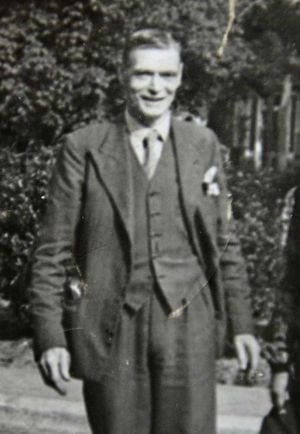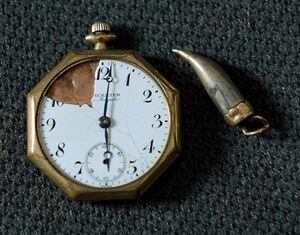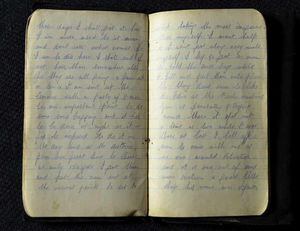Pocket watch saved soldier on front line
"My thoughts are that I shall never see England again. One of these days I shall get it, but I am more used to it now and I don't care what comes. "If I am to die here, I shall, and if not here then somewhere else, for they are all going a few at a time."





These were the sad words of a young soldier of the 9th Btn North Staffordshire Regiment, resigned to being slaughtered with thousands of his comrades on the Somme, the battle that most symbolised the horrors of the First World War.
But Corporal Walter Davis survived the bloodshed – saved by his pocket watch, barely two inches wide, which took the impact of a bullet to his chest.
It was an extraordinary piece of luck that saw him sent home to the Midlands after almost 12 months on the Western Front.
And with him, he brought back a short diary he had written while in the trenches.
His thoughts are penned in his Soldier's Small Book, issued by the Army to all service men so that they could log details of their military careers.
Corporal Davis entered only one date, July 28. The year is not recorded but would have been 1915, the day he left for France.
He records what he calls 'experiences' rather than the day-to-day grind of warfare. They include the night he was almost gassed after forgetting to take his gas helmet with him when he led a small party to sandbag a new trench at night.
He records the first death in the regiment – 'poor Jim Ford' – and his own fears about going 'over the top'. In one diary entry, he talks about a shell burying itself just a yard away from him in a trench. "Had it exploded there would have been no more of me, I should have been in bits," he wrote.
"It was often such things as these that I always thought of home, how I longer for it to be all over." The book has now been beautifully reproduced by his great-granddaughter Louise Ward, and includes a section she has added about her grandfather Walter John, Walter's son, who followed in his footsteps by serving in the Second World War.
He joined the South Staffordshire Regiment at 14 after lying about his age.The diary has also been the inspiration for a series of remarkable glass sculptures created by Louise, an art student from Walsall who is currently studying for a Masters degree at the University of Wolverhampton.
She has incorporated text from the diary on to the glass which have been moulded into 'death masks'. Originally from Aston in Birmingham, Walter returned from the war to live in Broad Lane South, Wednesfield, working as a bricklayer and living to the age of 76. Louise is one of 19 of his great-grandchildren. She says: "He didn't have any children before the war so if it wasn't for that watch in the top pocket of his uniform jacket I wouldn't be here. In fact, there are 45 people from four generations who wouldn't be here now.
"The watch was just in the right place. The bullet hit at the thickest bit of it." After his lucky escape he was injured in the leg and returned to England, believed to be in 1916. He was already married to Harriet Ann Betts, and they went on to have two children, nine grandchildren, 19 great-grandchildren and 15 great-great grandchildren.
Louise, 23, was born after Corporal Davis died in 1967. She decided to publish the book after becoming engrossed in his story while preparing for her degree in applied art at Wolverhampton.
l The book, A Man At War: The Diary of Corporal Walter Davis, including photographs, letters and postcards is available to buy at www.blurb.co.uk, starting at £28.80.





